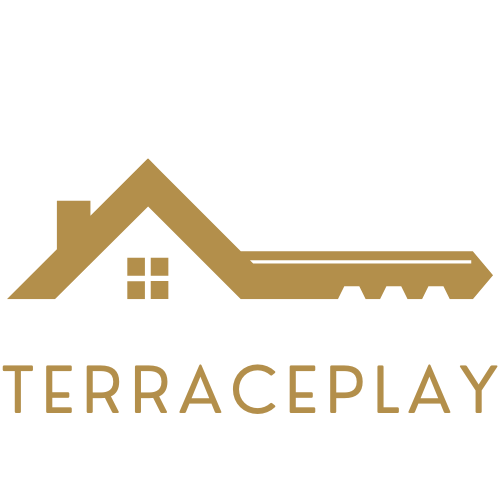Seattle’s real estate market is like a rollercoaster ride—thrilling, unpredictable, and definitely not for the faint of heart. With its stunning views and coffee-fueled tech scene, the Emerald City has become a hotbed for homebuyers and investors alike. But what’s really brewing beneath the surface?
Table of Contents
ToggleOverview of Seattle Real Estate Trends
Seattle’s real estate market remains dynamic, reflecting constant changes. Competitive prices define the current landscape, with median home prices around $850,000 as of 2023. Many buyers face intense bidding wars, driven by the ongoing demand for housing in desirable neighborhoods like Capitol Hill and Ballard.
Inventory levels also impact the market’s character. Recent data shows a 20% decrease in available listings compared to last year, contributing to a tighter market. This decline often results in heightened urgency among buyers, particularly first-time homeowners.
Interest rates influence buyer behavior significantly. Recent fluctuations in mortgage rates, averaging 6.5% for a 30-year fixed mortgage, affect affordability for many potential buyers. Investments in tech-related industries create a diverse economic base, leading to sustained demand for residential properties.
Young professionals increasingly seek urban living options. With amenities like public transportation, restaurants, and cultural venues, many areas attract a younger demographic. This demographic shift positively impacts property values, especially in neighborhoods near tech hubs.
Rental prices follow a similar upward trend. The average rent for a one-bedroom apartment reaches $2,500, showing a 10% increase over the past year. This trend indicates not only demand but also potential investment opportunities in rental properties.
Overall, Seattle’s real estate trends reveal a complex interplay of demand, pricing, and demographic shifts. As the market continues to evolve, future analyses will provide deeper insights into its trajectory and long-term implications.
Current Market Conditions
Seattle’s real estate market reflects significant changes as of 2023. Competitive prices and high demand shape the landscape, creating opportunities and challenges for buyers.
Price Trends
Median home prices average around $850,000, indicating a robust market. Bidding wars are common, especially in neighborhoods like Capitol Hill and Ballard. A consistent upward trend in prices influences affordability for many buyers. Young professionals stepping into the market drive demand, pushing some properties beyond their anticipated values. Price growth remains fueled by limited options and increased interest from investors.
Inventory Levels
Available listings decreased by 20% compared to last year, contributing to an increasingly tight market. This drop in inventory intensifies competition and urgency among buyers. First-time homeowners face particular challenges in securing homes amidst rising demand. Properties near tech hubs attract significant attention, further draining available inventory. Short supply continues to elevate prices, influencing overall market dynamics.
Emerging Neighborhoods
Seattle’s real estate landscape is evolving, with several neighborhoods attracting attention from buyers looking for opportunities and growth.
Popular Areas for Buyers
Capitol Hill remains a top choice for those seeking vibrant nightlife and cultural experiences. Ballard, known for its waterfront views and breweries, has also caught the eye of many. South Lake Union attracts young professionals due to its proximity to tech companies. Beacon Hill offers a family-friendly vibe, appealing to those wanting a community feel. Prices in these neighborhoods reflect their desirability, with homes frequently engaging in bidding wars. Buyers explore these areas for potential long-term investments as they offer lifestyle amenities and strong rental demand.
Future Development Plans
Multiple development projects signal Seattle’s growth trajectory. The expansion of the Light Rail aims to enhance connectivity across neighborhoods. Mixed-use developments are becoming common, integrating residential and commercial spaces. Projects like the redevelopment of the Seattle waterfront demonstrate efforts to increase public space and improve local infrastructure. Changes in zoning laws also exist to promote affordable housing solutions. Anticipated developments promise to attract new residents and enhance property values, thereby enriching the city’s collective appeal.
Impact of Economic Factors
Economic factors significantly influence Seattle’s real estate trends, shaping housing demand and overall market conditions.
Job Growth and Unemployment Rates
Job growth remains robust, with Seattle experiencing a surge in employment opportunities. Tech companies drive this growth, attracting young professionals to the workforce. The city’s unemployment rate, hovering around 3.5%, reflects a healthy job market. This low rate boosts consumer confidence, enabling more individuals to consider purchasing homes. The steady influx of skilled workers positions Seattle as a prime location for real estate investment. Buyers often seek homes in neighborhoods that offer access to key employers, further stimulating demand.
Interest Rates and Financing
Interest rates directly impact Seattle’s housing market. Currently averaging 6.5% for a 30-year fixed mortgage, these rates affect affordability and purchasing power. Many buyers face tighter budgets, prompting them to adjust their expectations for home purchases. Increased rates often lead to more competitive offers in sought-after areas. Financing options become crucial as buyers navigate their choices. Buyers frequently explore different loan products to secure favorable terms, affecting overall market dynamics. As these economic factors evolve, they shape listing prices and buyer strategies in Seattle’s competitive real estate landscape.
Buyer Behavior and Preferences
Competition among buyers in Seattle’s real estate market drives specific preferences. Many buyers prioritize modern amenities and energy-efficient features in homes. Buyers often consider proximity to public transportation and tech hubs essential for their lifestyle. With the increasing influx of young professionals, neighborhoods like South Lake Union see heightened interest. A significant portion of buyers seek urban living that aligns with their careers, further elevating demand.
When facing high prices, buyers demonstrate adaptability in their approaches. Individuals explore various financing options to enhance purchasing power amid rising interest rates. Buyers now exhibit a willingness to compromise on certain home features to secure properties in coveted areas. For example, some might choose smaller homes to remain within desirable neighborhoods like Capitol Hill or Ballard.
Communication with real estate agents plays a vital role in navigating the competitive landscape. Agents often emphasize the importance of prompt decision-making, given the frequency of bidding wars in popular neighborhoods. They encourage buyers to conduct thorough market research to identify emerging opportunities. Given that median home prices hover around $850,000, understanding market trends becomes crucial.
Many first-time buyers enter the market armed with knowledge, yet face challenges due to limited inventory. A 20% decrease in available listings intensifies urgency, pushing buyers to act swiftly. Additionally, buyers increasingly seek properties with strong rental potential, reflecting an investment mindset. Understanding these behaviors and preferences shapes how agents and sellers approach the market, ultimately influencing the overall landscape.
Seattle’s real estate market remains an exciting and evolving landscape. With strong demand driven by a vibrant tech scene and desirable neighborhoods buyers are navigating a competitive environment. The interplay of rising interest rates and limited inventory continues to challenge first-time homeowners while creating opportunities for savvy investors.
As urban living becomes increasingly appealing the city’s unique lifestyle offerings and ongoing development projects promise to shape the market’s future. Staying informed about these trends will be essential for anyone looking to buy or invest in Seattle’s dynamic real estate scene. The journey ahead holds both challenges and potential rewards for those ready to embrace the city’s real estate opportunities.


